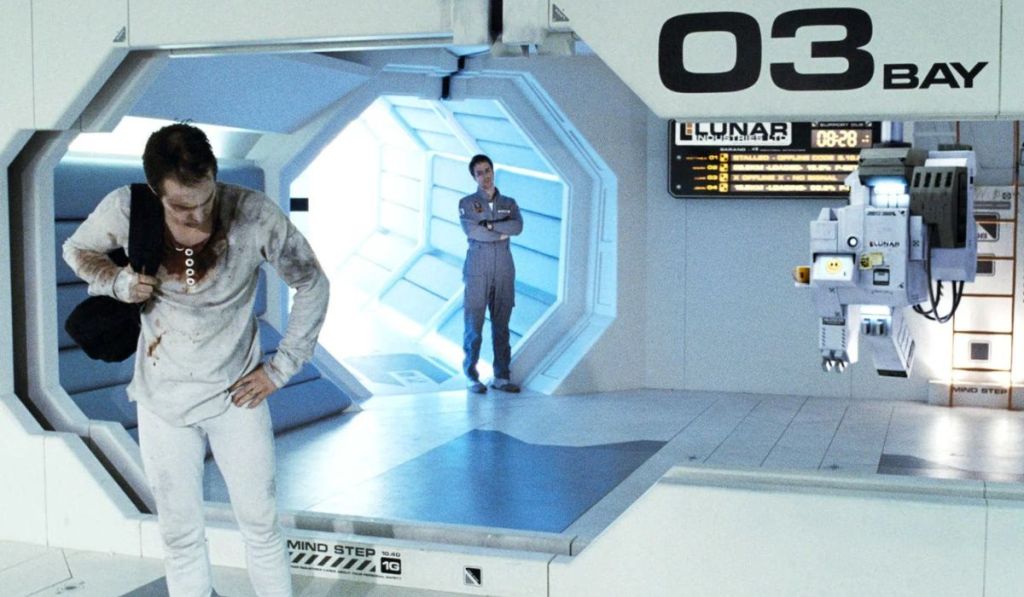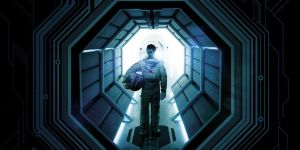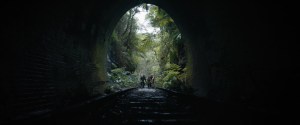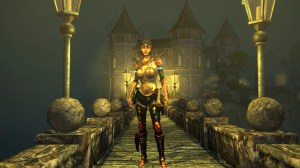Loneliness is one of the most powerful tools a good sci-fi can use, especially when it’s not just physical but emotional. Imagine spending years in a controlled environment, practically alone, with only an AI for company, and slowly realizing your own mind might not be trustworthy. The tension comes from every repetitive day, every strange alert, and every doubt about who you are when there’s no one to answer you. In today’s world, that’s surprisingly relatable, which makes it even more intriguing to give Moon a shot. This is a movie that only grows the deeper you dive in.
Videos by ComicBook.com
Astronaut Sam Bell (Sam Rockwell) is the only person on the Sarang Lunar Station. He’s been there for three years, all alone, mining helium-3 from the Moon to send energy back to Earth. But as his contract nears its end, things start to get weird: his mind feels off, he experiences hallucinations, and he begins to suspect that nothing is really what it seems.

We see this character spending his days in corridors, industrial rooms, and perfectly aligned equipment, living a nearly ritualistic routine. Everything feels monotonous, and every visual detail reinforces that sense of confinement and isolation. There are no over-the-top action sequences, no flashy CGI to distract you – the movie relies purely on psychological suspense and Rockwell’s performance to keep viewers hooked. Yes, it’s a risky choice, since nobody wants to watch a premise that sounds boring. However, it works perfectly because every minute in this isolated space makes the audience feel the weight of solitude and what happens when you no longer know who you are.
Sam’s relationship with GERTY, the station’s AI, is another highlight. GERTY isn’t just a digital assistant; he’s a companion, a confidant, and even a subtle threat. Kevin Spacey’s calm voice and the minimalist interface create a constant presence that makes you question whether you’re safe or being manipulated. And with that, it’s clear the story doesn’t need anything else. The real threat is corporate control and loneliness itself, and GERTY amplifies it quietly – but in a way that’s impossible to ignore.
Pulling off a film like this, which relies on so little, is tough. It depends entirely on an excellent script, and Moon delivers. The writing is precise. Every revelation lands at the right moment – never rushed, never dragged out, which keeps the story from feeling tedious. You uncover the truth about cloning, ethics, and identity alongside Sam, and the impact hits harder because of that. There are no long expositional monologues either; everything comes through what we see, feel, and through Rockwell’s outstanding performance. Moon is sci-fi, yes, but these elements turn it into a psychological thriller that lingers in your mind even after it’s over. You know that type of story that makes you wonder what you’d do in the character’s shoes? This is exactly that.
And speaking of Rockwell, he carries almost the entire movie solo, playing different versions of the same character flawlessly (no wonder he earned multiple award nominations for this role). He conveys fear, confusion, and determination without overacting, making you genuinely care about every Sam. This performance is crucial because it creates the emotional connection that makes the movie a true gem. In less capable hands than filmmaker Duncan Jones’, this story could’ve felt cold or artificial, but Rockwell humanizes every scene, making it easy to feel the isolation, fear, and frustration of someone repeatedly confronted with their own existence.

But what’s most impressive is how balanced the film remains throughout. There’s no clutter. The narrative doesn’t drag, but it doesn’t rush either. Every detail gets room to breathe. That creates a satisfying experience, even for viewers who normally forget the less commercial films of the 2000s. Moon is a sci-fi that values introspection, ethics, and emotion, showing that you don’t need explosions, aliens, or other typical genre tropes to tell a great story.
On top of all that, Moon hits hard with its critique. Lunar Industries treats clones as disposable tools, showing a dystopian vision of capitalism where profit outweighs human life. The story makes you question what it really means to be human in a system that exploits without limits. It’s quietly disturbing but extremely relevant, because even though it’s set in the future, it mirrors issues happening in today’s world.

In a sea of sci-fi productions, Moon ended up one of the forgotten ones – maybe because it came out at a time when audiences weren’t ready to face such an unflinching, introspective journey. But that’s exactly why, now more than ever, it deserves attention. It proves you can make sci-fi intimate, psychological, and ethically charged all at once. In the end, it’s a study of loneliness, identity, and exploitation, all set in a believable, futuristic environment. And quick tip: if you liked Mickey 17, you’ll definitely enjoy this one too.
Simple, profound, unforgettable – Moon is one of the best works of the decade, and anyone who’s seen it knows it. Its high scores from both critics and audiences on Rotten Tomatoes speak for themselves.
Moon is available on Apple TV+.









